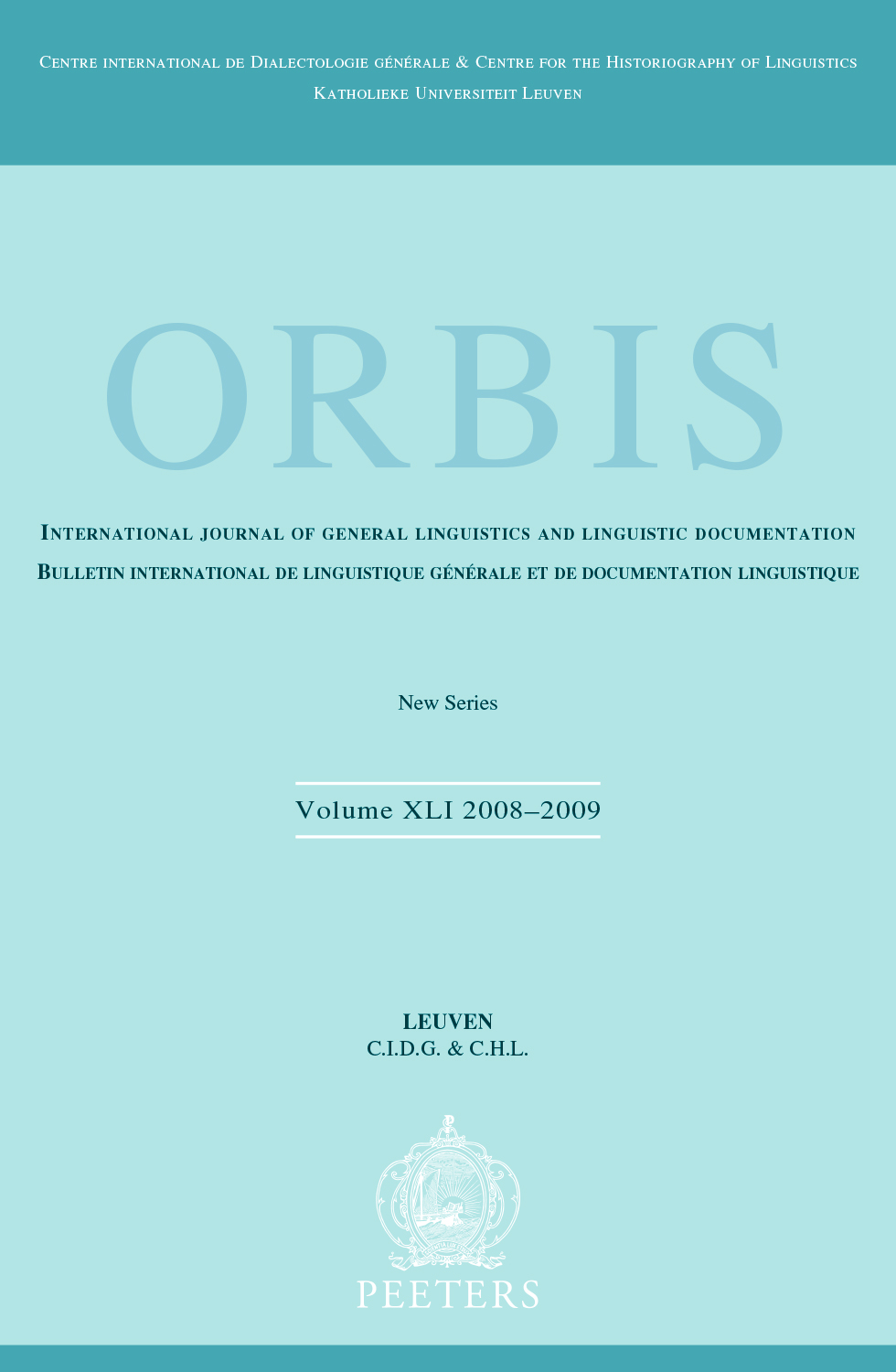 previous article in this issue previous article in this issue | next article in this issue  |

|
Document Details : Title: The Treatment of Relational Nouns in Ancient Grammar Author(s): SWIGGERS, Pierre , WOUTERS, Alfons Journal: Orbis Volume: 38 Date: 1995 Pages: 149-178 DOI: 10.2143/ORB.38.0.563366 Abstract : The origin of Western grammar in Greek antiquity is a topic in which at least three disciplines come together: the history of science, the history of philosophy and logic, and the philosophy of linguistics. From the point of view of the history of science, the origin of grammar constitutes a fascinating topic since it shows how a field — crucially based on the use of written language — was carved out from a continuum stretching over philosophy and rhetoric (cf. SWIGGERS - WOUTERS 1995a). This dualistic emergence is reflected in the methodology (e.g., the use of diaíresivor “splitting-up technique”, and of merismóv, the subdivision of a genusinto speciesor of a speciesinto subspecies), as well as in the terminology of the earliest phases of grammar in the first centuries B.C. From the point of view of the history of philosophy and logic, we can see in the early history of grammar how logical concepts were used and adapted by grammarians, and how they served to express generalizations about the organization of linguistic data; conversely, a close scrutiny of early texts can make us aware of the degree to which philosophy was dependent upon the grammar of the language in which it was cast, viz. Greek. It is, e.g., no wonder that the theory of truth constructed by PLATO in his Sophist crucially hinges on a theory of propositional structure as consisting of a (nominal) subject and a predicative expression. Finally, from the point of view of the philosophy of linguistics (or what would be called “épistémologie de la linguistique” in French), a study of the origin of Greek grammar provides essential insights into some specific features of Western grammar and linguistics: the close link between orthography and phonetics (combined with an overall inclination towards a normative approach), the emphasis on word classes, their formal markings and their semantic aspects, and finally the study of morphosyntax from the point of view of the encoding of logico-semantic categories. |
|
